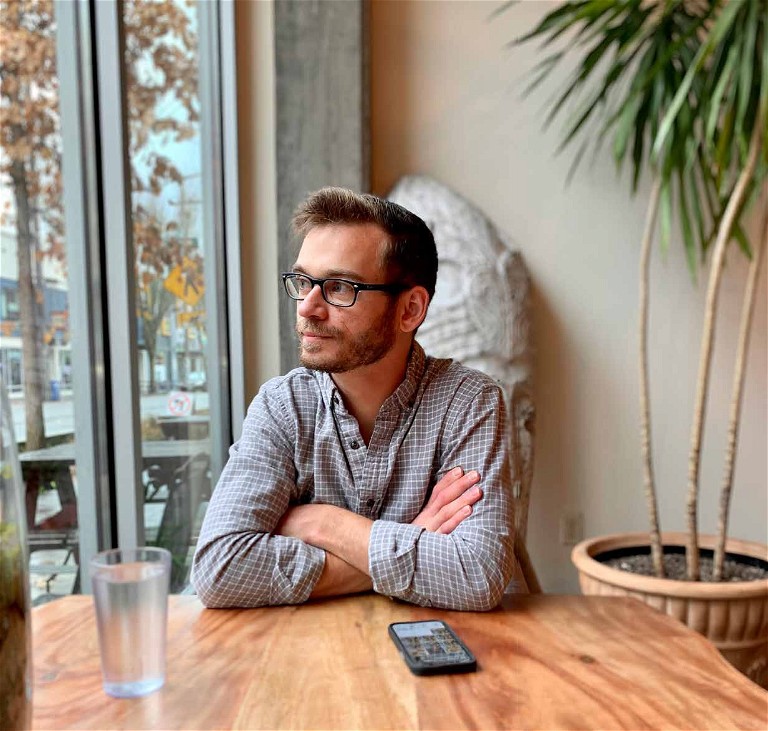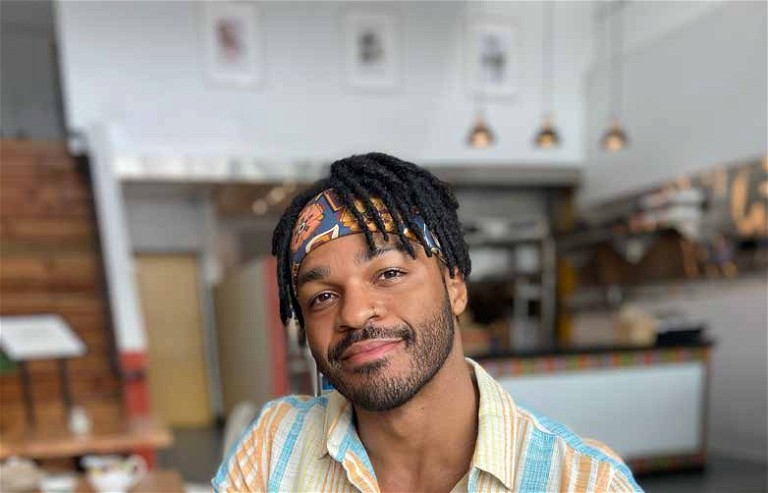WHERE’S THE MEAT?
The culture of toxic masculinity preventing men from becoming vegan

“ "Representation may be the key to erasing society's underlying belief towards male vegans ”
Daniel Roselfeld
In 2005, Burger King ran an ad on national television, compiling centuries of gender roles and societal norms into a catchy show tune that ran with the slogan “eat like a man.”
The advertisement was a marketing tactic for the fast-food chain’s newest item, the Texas Double Whopper, a massive burger comprised of two pieces of beef stacked on top of each other.
This advertisement perpetuated a harmful ideal of gender identity which, nearly 20 years later, has wider repercussions on the future of our society.
“Real men”
Over the past few years veganism has grown into a widespread social movement with plant-based products easily accessible on supermarket shelves and restaurant menus. Even Burger King has several vegan options, registered with The Vegan Society’s trademark, no less.
Interestingly, according to large-scale surveys by The Vegan Society and others, the growth in vegan lifestyles is primarily due to women. In fact, almost twice as many women in Great Britain identify as vegan compared to men.
According to recent studies, this skewed gender demographic is due to cultural views toward veganism and plant-based lifestyles. These views are built upon a foundation of societal norms, gender identity and toxic masculinity – a deeply rooted ideal system that proclaims “real men” eat meat.
Food and psychology
One of the individuals pioneering our understanding of this relationship between masculinity and plant-based lifestyles is UCLA social psychologist Daniel Rosenfeld. In a recent conversation, Rosenfeld explained the motivations behind his research, stating, “Once I started practicing a plant-based diet, I realised the food choices we make have very strong social and psychological implications.”
In a recent study, Daniel and fellow researcher Janet Tomiyama found that men tend to eat more meat because it makes them feel more “manly.” As Rosenfeld explains, this idea informs society’s views toward plant-based lifestyles. He says, “One of the common stereotypes of plant-based eaters is they are less masculine and more feminine.”
This stereotype affects the way men approach eating meat, and according to their study, men who conform to more traditional roles of masculinity are less open to plant-based lifestyles.
Backlash
As Rosenfeld highlighted these ideals in our conversation, I began to think about my own experiences with veganism. I grew up outside Los Angeles in a working-class family that prioritised traditional views of masculinity, including the idea that men eat meat. Looking back on my childhood, I don’t ever recall being introduced to any positive ideas of veganism or vegetarianism. In fact, throughout my youth I had very negative views of veganism, seeing it as extremist.
Therefore, when I went vegetarian during my late teens as my own form of environmentalism, this involved diverting from my pre-conditioned ideas of masculinity. My choices were met with a backlash. I was often the subject of criticism and ridicule. For years, these backhanded comments filled every afternoon get together or family holiday. It became apparent that plant-based food choices meant one thing – I wasn’t a “real man” in the eyes of society.
In a recent study from the Centre for Advanced Food Engineering, researchers interviewed 36 men from Sydney, Australia, who had recently eaten at a vegan restaurant for the first time. The men were then asked about their openness to plant-based lifestyles.
“It was surprising to see the strength of their negativity,” writes study researcher Dora Marinova in an article for The Conversation. Her article revealed that participants made comments such as “I was feeling I was sacrificing my manhood” or “I don’t want to end up with my friends laughing at me over a plant-based burger.”
Shattering the stereotype
Luckily, many individuals are challenging stereotypes toward plant-based lifestyles and redefining what it means to be vegan in our society.
As a Black male from New York City, Berto Calkins has been shattering the stereotype of the typical vegan for years. His online platform challenges the societal norms of veganism, offering an alternate view of what the typical vegan looks like.
Berto says, “I want people who look like me and come from the same neighbourhoods as me to be interested and not turned off by what they think veganism is.”
Outside of a few friendly jests, Berto explains that he hasn’t met much resistance to his choice to go vegan. In his experience, many men are more curious about his lifestyle, asking questions about his diet or seeking advice about going vegan instead of diminishing him for his choices. This lack of resistance may have to do with the way Berto shares his lifestyle.
“I don’t want to be known as just being the vegan guy,” states Berto. “I want to be known for me being me.” He explains that he strives to connect with his followers more personally, building a relationship with his character, before they learn about his vegan lifestyle. “Humans are multifaceted,” explains Berto. “We have so many different portions of ourselves.” This approach to his personal image allows Berto to connect with people before allowing them to form preconceived judgments about his lifestyle choices.
Behavioural shifts
According to Daniel, this representation may be the key to erasing society’s underlying beliefs toward male vegans.
“We have two options,” explains Rosenfeld. “Changing how society defines masculinity or making plant-based eating seem more masculine.”
Both of these solutions require massive behavioural shifts in our society. These shifts have to be led by individuals challenging the status quo, changing the stereotypes associated with veganism and creating space for future vegans to feel welcomed. In other words, we have to lead by example.
These changes also require our society to reconsider its associations with masculinity. As a society, we need to find ways to rewrite empathy, compassion and self-care as masculine traits. It’s time to welcome a deviation from this old system that wrongly criticises men for taking care of their health and advocating for a more sustainable planet.
For that reason, I think it’s better to say “real men” advocate for change – and by all indications, that change is plantbased.
By Keegan Sentner, environmental journalist and photographer, keegansentner.com

Berto Calkins
“ "I want people who look like me to not be turned off by what they think veganism is ”